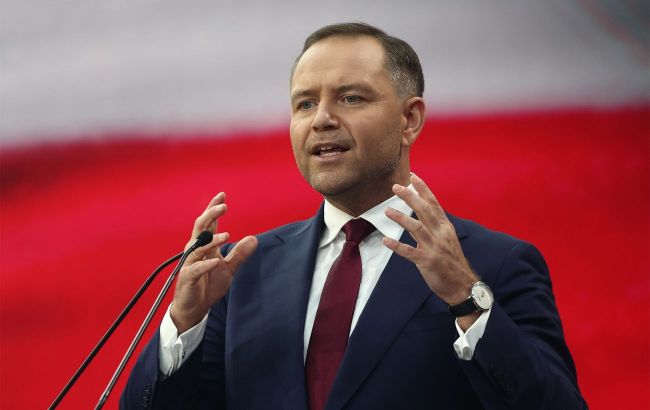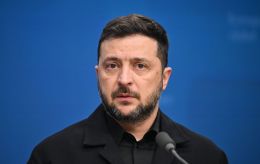Nawrocki wins election in Poland — and that's bad news for Ukraine
 Karol Nawrocki (photo: Getty Images)
Karol Nawrocki (photo: Getty Images)
Karol Nawrocki, known for his anti-Ukrainian rhetoric and heightened focus on problematic historical issues, has won the presidential election in Poland. RBC-Ukraine explains what his victory means for Ukraine and whether the new president will be able to influence Ukraine’s integration into the European Union and NATO.
Key questions:
- What influences Nawrocki’s anti-Ukrainian rhetoric?
- How can his ambitions be balanced by other, more pro-Ukrainian politicians in Poland?
- What does Nawrocki’s victory mean for Poland?
- Nawrocki’s attitude toward Ukraine
This year, some of Ukraine’s western neighbors are holding significant elections that may affect their policy on Ukraine. Romania has avoided an undesirable scenario for Ukraine – the pro-European mayor of Bucharest, Nicușor Dan, became president. Moldova will have parliamentary elections this fall, and the battle there is in full swing.
Meanwhile, in Poland’s presidential election, the right-wing conservative head of the Institute of National Remembrance, Karol Nawrocki, claimed victory. Due to his background as a historian, he is known for his sharp anti-Ukrainian statements, particularly on the events of the Volhynia massacre. He asserted that Ukraine would not be able to join the EU or NATO until the historical disputes connected to the Polish-Ukrainian conflict of the 1940s were resolved.
Nawrocki also criticized Ukrainian President Volodymyr Zelenskyy for allegedly having a negative attitude toward Poland, especially concerning the Volhynia massacre and the transit of Ukrainian grain through Poland. All of this points to potential difficulties in relations between Ukraine and Poland, political scientist and expert at the think tank United Ukraine, Dmytro Levus, told RBC-Ukraine.
“For Ukraine, the situation is quite difficult, because it is clear that Nawrocki’s statements were unambiguous regarding Ukraine’s European and Euro-Atlantic integration,” said Levus.
Ahead of the second round, Nawrocki appealed to far-right voters who had previously supported anti-Ukrainian radicals Sławomir Mentzen and Grzegorz Braun. “So it’s natural that his (Nawrocki’s – ed.) rhetoric will continue to exploit historical issues, claiming that Ukraine has not atoned for its guilt before Poland. It will be one of the main directions of his policy,” Levus remarked.
Nawrocki is formally an independent candidate, but he enjoys the support of the opposition party Law and Justice. With his victory, this political force has effectively secured a political comeback after its defeat in the 2023 parliamentary elections.
The split in Polish society
Apart from the president, another key figure in Poland is the prime minister. Currently, that position is held by Donald Tusk, a representative of the left-liberal Civic Coalition. Nawrocki will find it problematic to implement all of his promises in practice, although he still holds a powerful instrument of influence – the right to veto laws passed by parliament.
“The election results themselves demonstrate that society is deeply divided. Not along some superficial lines, but in terms of foreign policy, and more importantly – domestic political processes and social issues. So, for now, we can say that it will be difficult for him to realize all the strategic goals he set for himself. The dualism within Poland – both societal division and conflict between branches of power – will persist. This is something we can predict with confidence. And it is possible that could even lead to early elections,” Levus said.
It means Kyiv needs to diversify risks already now. “Ukraine’s foreign status will become more complicated per se, and it is necessary to develop new options, to orient toward other European countries that remain advocates of Ukraine,” the expert concluded.
Sources: statements by Karol Nawrocki, articles by Onet, the BBC, and comments by political scientist Dmytro Levus.

